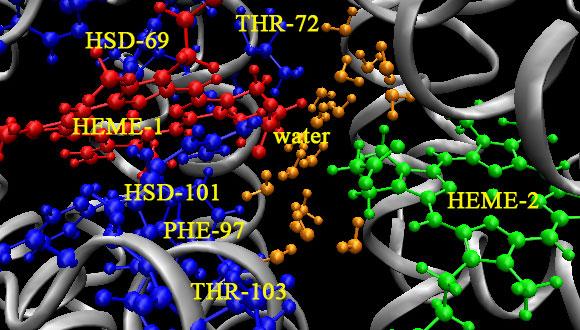סמינר בכימיה פיזיקלית: Functional nanomaterials as sustainable catalysts by glancing angle deposition (GLAD)
Hannah-Noa Barad, Max Planck Institute for Intelligent Systems
Zoom: https://tau-ac-il.zoom.us/j/88394286155
Abstract:
In the quest for improving sustainability of earth’s resources that we use, discovery of new catalysts is a pressing issue. There are several reasons for that, among which are:
First, presently the most efficient and stable catalysts for the chemical processes that we use to transform raw resources into products with the desired functions (materials or energy type), contain expensive and non-abundant elements such as Pt, Ir, and Ru. This explains the efforts to find abundant, available, low-cost, stable alternatives that will yield process efficiencies comparable to those we have today. For example, for water splitting many new materials with different compositions have shown promising results as cata-lysts. However, they are mostly prepared by wet chemical synthesis, which results in chemical waste and can be too slow for industrial use. Second, the morphology of the materials is important, because it affects their catalytic properties as higher surface areas yield more catalytic active sites, surface energetics change, leading to improved reaction rates, and other differences which will affect catalytic activity. These reasons emphasize the motivation to accelerate the process of finding new materials with varying nanostructures and optimized function, by systematic exploration of several parameter spaces.
Glancing angle deposition (GLAD) is a physical vapor deposition (PVD) shadow growth technique where the substrate is positioned at an oblique angle to the vapor source and can be manipulated with regard to substrate tilt angle and rotation, during the deposition. The thin films obtained by GLAD have unique mi-cro- or nano-structures, which depend on ballistic shadowing of the substrate, and are formed as nano- or micro-columnar films. In GLAD, many types of columnar structures can be made, including slanted or vertical posts, square spirals, and helical thin films, leading to 3D nanostructure fabrication.
I will present the first original results of using GLAD to form different types of material compositions and nanostructures as functional catalysts for sustainable resources. Nano-scale morphology and material com-position are varied simultaneously using an adapted shadow growth GLAD system,[1] which eliminates the commonly used wet chemical steps for nanostructure synthesis. In a well-controlled one-step growth, one quickly obtains a large number of different nano-columnar structures, including nanorods, nanohelices, and nano-zigzags, with varying material compositions, on a single substrate. GLAD also serves to form na-noporous ultra-thin mesh structures, in a novel dry synthesis method. Both nanostructure types were studied for their electrocatalytic performance in the O2 evolution as well as CH3OH oxidation reactions and show high activity and stability. The insights gained, show an important dependence on compositions and nanostructuring, which the standard experimental techniques cannot achieve or explore, thus illustrating the importance and impact that GLAD has and will have on developing sustainable catalysts.
[1] H.-N. Barad, M. Alarcón-Correa, G. Salinas, E. Oren, F. Peter, A. Kuhn, P. Fischer, Mater. Today 2021, In Press, DOI 10.1016/j.mattod.2021.06.001.
מארגני הסמינר: פרופ' חיים דיאמנט וד"ר שלומי ראובני


